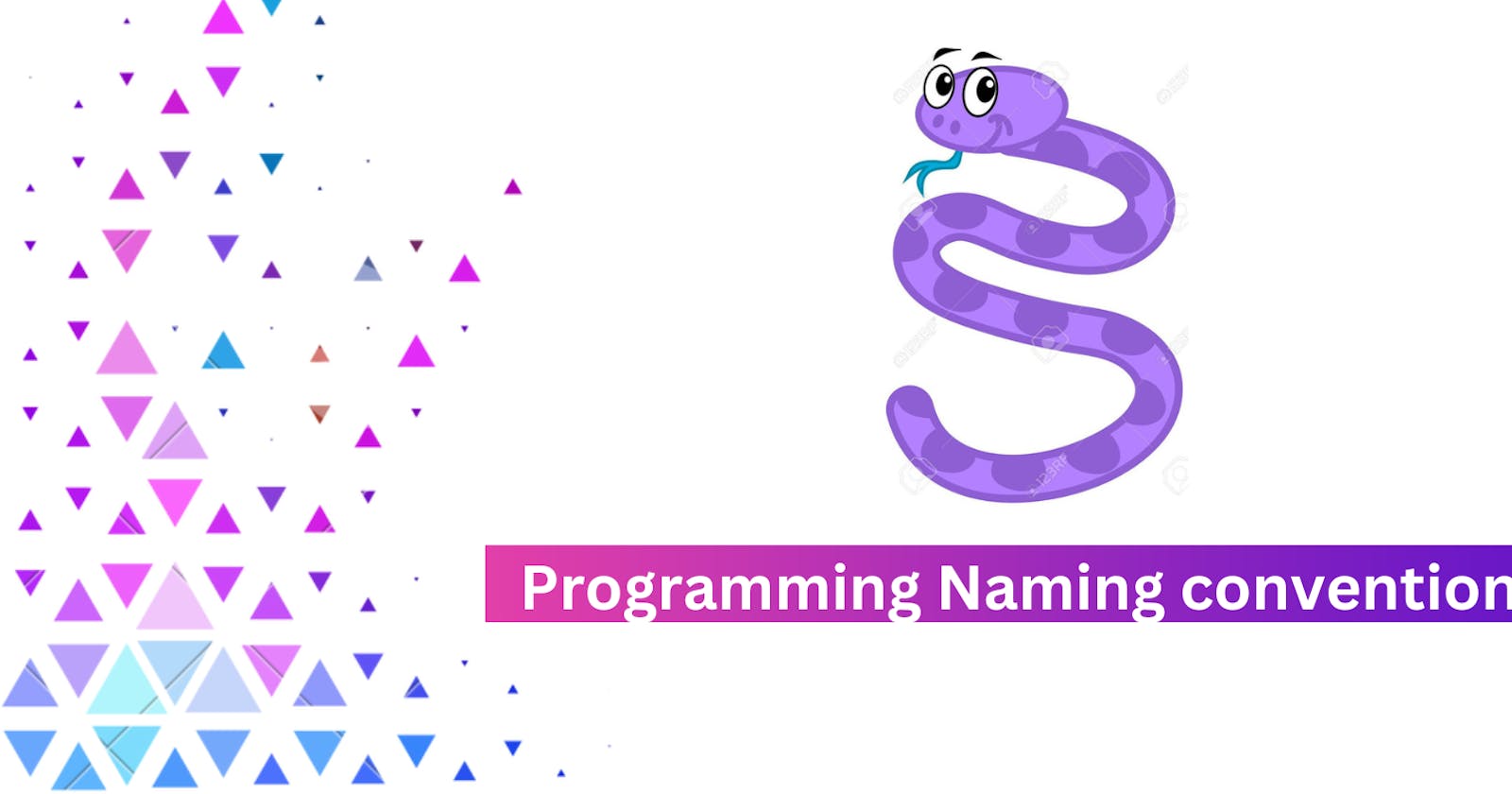The Secret Of Successful Programming: Naming Conventions You Should Know
Introduction
Programmers have come up with concepts like camelCase, snake_case, PascalCase etc. to help make names in the world of tech relatively easy, readable and understandable. These concepts are called naming conventions and all programming languages use them.
In programming, naming conventions are rules and guidelines used in a computer program, database or system for naming variables, functions, classes, or other elements. These naming conventions have rules on using uppercase letters, lowercase letters, underscore, numbers or any other characters. They provide a standard means for naming things providing clean codes which are understandable even to non-programmers.
Importance Of Naming Conventions In Programming
Readability: Using a proper naming convention helps ensure that codes are understandable to others and you.
Collaboration: Using ambiguous names in programming makes it difficult for others to understand what your code does when you seek assistance. A lack of understanding frustrates those who want to collaborate with you. Therefore, readable codes encourage other developers to help out in a project which in turn builds collaboration.
Maintainability and debugging: When in a collaboration, consistency in naming becomes paramount. Having a consistent naming convention for variables, functions etc makes it easier for you and other developers to maintain code and makes it easier to spot errors and issues.
Time-saving: Not using a clear-cut naming convention confuses you about what a variable represents or what to expect when a function is run. In just a scenario, you have to look through each line of the code trying to figure out what the function does. This is a time aster.
Re-usability: codes with good naming conventions make it understandable and if the class or function has a more generic form, this increases the chances of reusing them.
Common Naming Conventions
camelCase
In camelCase, the first letter of every word is capitalized except the first word and the words are chained together without spaces between them. camelCase words look just like a camel's hump.
//Examples of camelCase Naming Convention
let countNumbers;
let studentsGrade;
let employeesData;
PascalCase
The PascalCase convention is similar to camelCase except in this case the first letter of the first word is also capitalized.
//Examples of PascalCase Naming Convention
let CountNumbers;
let StudentsGrade;
let EmployeesData;
snake_case
Using the snake_case convention, words are all in lowercase with an underscore character separating words.
//Examples of snake_case Naming Convention
let count_numbers;
let students_grade;
let employees_data;
kebab-case
words are in all lowercase and are separated by a hyphen (-).
//Examples of kebab-case Naming Convention
let count-numbers;
let students-grade;
let employees-data;
SCREAMING_SNAKE_CASE
Here, words are separated with an underscore and are written in all uppercase.
//Examples of SCREAMING_SNAKE_CASE Naming Convention
let COUNT_NUMBERS;
let STUDENTS_GRADE;
let EMPLOYEES_DATA;
Conclusion
These conventions were introduced to help make your programming less distressful and more understandable. Though using any of the above-mentioned naming conventions in your code will not present any issues but most programming languages have a naming convention that is quite popular and recommended among programmers using the particular language which is commonly any of the above.
Now that you know the five common programming naming conventions, it will be relatively easy for you to get started with making your codes readable and understandable.
Enjoyed what you read?
I will like to connect with you on Twitter, LinkedIn and Facebook.
FAQ
What are naming conventions in programming?
Naming conventions are rules and guidelines used in a computer program, database or system for naming variables, functions, classes, or other elements. These naming conventions have rules on using uppercase letters, lowercase letters, underscore, numbers or any other characters. They provide a standard means for naming things providing clean codes which are understandable even for non-programmers.
Examples of naming conventions in programming?
In the world of programming, the common naming conventions are camelCase, PascalCase, snake_case, kebab-case and SCREAMING SNAKE CASE.
What is camelCase?
camelCase is a programming naming convention in which the first letter of every word is capitalized except the first word and the words are chained together without spaces between them. Eg: countNumbers.
What is PascalCase?
The PascalCase convention has the first letter of every word capitalized including the first word. E.g AddNumbers.
What is kebab-case?
In Kebab-case, the words are all written in lowercase and are separated by a hyphen (-). E.g.: show-prime.
What is snake_case?
Using the snake_case convention, words are all written in lowercase with an underscore character separating words. E.g.: add_item.
Why is naming convention important in programming?
Using naming conventions when writing codes is important for readability and saves time. It is also important when collaborating and it helps make debugging less hassling.

